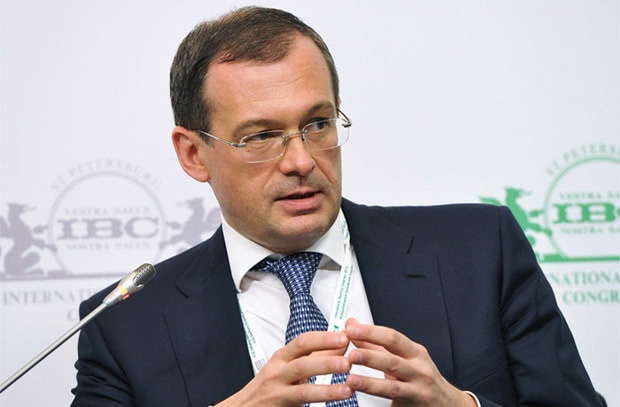Night gatherings with Putin: where would billions come from?
The authority divides peanuts to support the real sector of the economy with the unprecedented support of the financial sector
The authority of Russia is trying to scotch the consequences of the crisis for the real sector of the economy. Night meetings with the President of Russia came into play. The volumes of the help are not great, which look like peanuts against a background of the shaking banking system of the country. The economic reviewer of Realnoe Vremya online newspaper Albert Bikbov compares the volumes of the help and thinks about whose account will be responsible for the salvage of bankrupt bankers.
Night gatherings
A night meeting on economic issue with the President of Russia Vladimir Putin on the 11th of March generated many misinterpretations due to its informational privacy. One will do conjecture on the grounds that the information is closed and the state of affairs in the economy simply terrifies.
But the behavior of the Kremlin was better on Monday, and there was a leak to the press via Vedomosti with reference to 'sources with knowledge'.
The meeting, according to the information of the newspaper, was held on the head of the Ministry of Economic Development Aleksey Ylyukaev's initiative, whose ministry offered to increase the programme of project financing of the Ministry of Economic Development and the Central Bank from 100 to 240bn rubles purporting that 20bn rubles of necessary governmental guarantee are included in the budget for 2016 and that today 42 investment projects at 347,3bn rubles have been chosen and they need 235,5bn loans. The mechanism of the work of the financing is simple: projects are granted loans in chosen banks at 11,5% (the Ministry of Economic Development offers to increase the rate to 12%), and the banks are refinanced by the Central Bank at 9%. On 4 March 2016, the Central Bank refinanced the loans of the programmes equal to 69,2bn rubles only.
Good deed! Although the mechanism of the selection of projects has blemishes concerning the priority on sectoral characteristic or on the criterion of import substitution, should it be done via the new Industry Development Fund of Russia? In general, we are speaking about usual problems that are to be solved. The market of large investment projects financing today is very difficult for clear reasons. So, an attempt to inject money there is a correct thing.

To tell the truth, all this 'late-night wake' with Putin was in vain… Decisions on the increase of the limit on modest for the scale of the country 140bn rubles was not approved at the meeting – everything sank in tactical and organizational issues, which demonstrate that there is not an end to the discussions. What is more, both the President and many participants of the economic block are afraid of inflation risks connected with the project financing. There is no clarity in budgetary sources too…
The only good news is about the Industry Development Fund of the Ministry of Industry that will get 20bn rubles of capital increase. By the way, projects of such companies of Tatarstan as Interskol-Alabuga JSC (500m rubles), Paritet PLC (102m rubles), SafPet (700m rubles), Kama Crystal Technology PLC (102m rubles) were approved by the fund.
But what does an annual budget equal to 20bn rubles for the whole country mean?
By the way, the creation of such a fund was declared in Tatarstan in a draft bill of the Republic of Tatarstan No.213-5 'About industrial policy in the Republic of Tatarstan' (at present it is considered by the State Council of Tatarstan).
The problem is that where would the money come from in a poverty-struck regional budget if they scraped up peanuts in very Russia?
Yawning abyss
It might seem that here it is, a fact of life. The superior economic authority is not sleeping but discussing and dividing peanuts on stabilization of the writhing in torment crisis of the real economy. Meanwhile, a sheer abyss of financing burst out in one of the main economic institutes of the country – the Central Bank of Russia: the emission whose scale the most downright supporters like Glazyev and Co have never seen in the sweetest dreams is being executed in real time mode. Trillions of new monetary emission are injected into the economy:
As you see, the monetary mass increased by 3,5 trillion rubles within one year only. Yes, the December sharp increase of cash by 1 trillion rubles was cut in January 2016. But an additional increase of the monetary mass by 3,5 trillion rubles in a year (or by 11%) in conditions of high non-monetary inflation (caused by overestimation due to devaluation) is a very serious bid for the increase of inflation rates in 2016. If we add the forecasted increase of currency emission rate because of election to the State Duma and the plug of budgetary deficit, serious doubts arise in a vain attempt of the Central Bank to take all situation on inflation under control.
But what could cause such an avalanche of emission? Is not it the real sector that our economic authority is trying to provide a peanut financing careless of its sleep?
Black holes of the Russian economy
It is true that the trouble did not come from the real sector of the economy. The trouble came from the banking system.
Mikhail Sukhov, the deputy chairman of the Central Bank of Russia, admitted in his speech at a meeting of the Russian Economic and Financial Forum in Switzerland that the total of the negative equity in equities of 223 banks, whose licences were revoked by the Bank of Russia during these two years, reached 1,2 trillion rubles.

Mikhail Sukhov: 'We detected that liabilities exceeded assets equal to 1,2 trillion rubles, that is to say, each bank had 5bn rubles on average, in 223 banks whose licences for banking transactions were revoked'. Photo: interfax.ru
'Unfortunately, the scales of the problems, the scales of the abuse of the heads and the bank owners were big. For instance, we detected that liabilities exceeded assets equal to 1,2 trillion rubles, that is to say, each bank had 5bn rubles on average, in 223 banks whose licences for banking transactions were revoked. Our crooks enter the international scene. We detected a dissipation of assets at 120bn rubles using instruments connected with foreign assets.'
Sukhov specified that about 150 banks, or about 30% of the total amount, suffered from a procedure of revocation of licences and sanitation of the Central Bank in recent two years. Just imagine, 1,2 trillion is the size of the 'financial hole'! And it is today's size, and the licence of the next bank will be revoked literally in a day… It will just suffice to mention Vneshprombank among the latest 'heroes'.
According to the Central Bank, a 'financial hole' (factually negative equity) equal to 210bn rubles was detected there at the beginning of March! And Vneshprombank demonstrated exceptionally positive indicators three weeks before the revocation. On 1 January 2016, its capital made up 15,429bn rubles, its net profit was 1,6bn rubles according to the results for 2015.
Who pays for the banquet?
In principle, everything what is happening in the banking sector might be characterized by only one word – 'zombie'. Having conducted a post-mortem of a bank after the revocation of its licence, the Central Bank diagnoses, as usual: the bank was dead many moons ago. Almost the banking system of the Russian Federation is not only a huge container of the piled 'toxic' assets because of the crisis but also a frank criminal community. Dissipation of clients' money, beforehand doomed to loan default, different kinds of fraudulent transactions designed for top managers' own enrichment of banks – are just an everyday life of our banking system.
And here the salvage of our national development bank Vnesheconombank is about the corner. The scale of its problems is estimated at approximately 1,5 trillion rubles. What should be done with one 'hole' more? No one can answer this question clearly… Yes, the chairman was changed, the ex-top manager was arrested. But where would the money come from to patch this hole? The budget does not have it, so, it means that the money will have to be printed.

As the deputy chairman of the Central Bank of Russia Mikhail Sukhov informed at the same forum of the Russian Financial and Economic Forum is Switzerland, now the closing of the financial banking holes is executed by means of emission. For instance, the Deposit Insurance Agency of Russia will need the next loan of the Central Bank equal to at least 100bn rubles to replenish the Deposit Insurance Fund in order to pay off the creditors of the bankrupt banks:
'Now the 'cleaning' of the banking sector led to the emission of 900bn rubles, which are the loans of the Deposit Insurance Agency for financial sanitation and lending of the Deposit Insurance Fund. I think this figure will exceed 1 trillion rubles in the short run because it will be necessary to take out loans for the Deposit Insurance Fund.'
So, here are the heroes of such a generous emission by the Central Bank – our unsupervised banks. And a banking supervision might exist, and banks are piled with accountability to the regulator. Let's face it, it would be franker to say that there is no banking supervision in Russia. And any bank that has a shining window accountability turns out to be a 'zombie with wide experience' during a 'post-mortem'. If you think that the emission by the Central Bank designed to plug the financial holes that propagate every day is not a terrible thing, I should assure that any large-scale emission brings to inflation, and inflation is a tax on population, especially the poor population. The poor become poorer, while mazurka is still playing in the banking ball. But something is to be done with all our banking system because it cannot continue any more – these trillion emissions covering the rottenness of the banking sector will kill the economy!
Meanwhile, our President, the government, the Central Bank of Russia organize exhausting night meeting and divide peanuts to support the poor real sector of the economy…